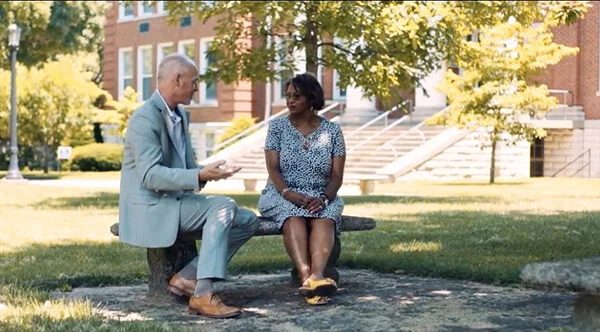Spousal impoverishment protections are crucial safeguards in Kentucky’s Medicaid system. These rules aim to prevent the financial ruin of a spouse when their partner requires long-term care. In Kentucky, authorities recognize the importance of maintaining financial stability for the community spouse. This is the spouse who continues to live at home while their partner receives institutional care.
The protections include two key components: the Community Spouse Resource Allowance (CSRA) and the Minimum Monthly Maintenance Needs Allowance (MMMNA). Additionally, the CSRA lets a spouse “keep half of the couple’s countable assets, up to their state’s maximum resource standard” without affecting their partner’s Medicaid eligibility. This allowance ensures they can maintain their quality of life. Kentucky’s MMMNA establishes a minimum income level for the community spouse. If their income falls below this threshold, they may receive a portion of their institutionalized spouse’s income.
At Elder Law Guidance, we understand the complexities of these rules.
Our team is ready to help families navigate the intricate Medicaid application process while maximizing spousal protections. If you need help navigating Kentucky’s spousal impoverishment rules, contact us to schedule a free consultation. Our team of skilled attorneys is prepared to help you through this process.
Kentucky’s Medicaid Spousal Impoverishment Rules
Kentucky’s Medicaid program incorporates spousal impoverishment rules to protect the financial well-being of a community spouse when their partner requires long-term care. These provisions ensure that the spouse remaining at home isn’t left destitute due to Medicaid eligibility requirements.
In Kentucky, the community spouse can retain a portion of the couple’s assets, known as the Community Spouse Resource Allowance (CSRA). As of 2024, this amount ranges from a minimum of $30,828 to a maximum of $154,140. This allowance helps maintain financial stability for the non-applicant spouse.
Income protection is another crucial aspect of these rules. Kentucky follows federal guidelines for the Minimum Monthly Maintenance Needs Allowance (MMMNA), which sets a floor for the community spouse’s income. If the spouse’s income falls below this threshold, they may keep a portion of the institutionalized spouse’s income. More on that later.
The specific dollar amounts for CSRA and MMMNA are subject to annual adjustments. It’s crucial to consult with experienced professionals for the most up-to-date figures and personalized guidance.
We understand that navigating Medicaid eligibility can be complex. Kentucky’s spousal impoverishment provisions aim to balance the need for long-term care with the financial security of the community spouse. These rules apply specifically to married couples where one spouse requires institutional care or home and community-based services.
It’s essential to note that these protections apply to married couples where one spouse requires long-term care. They don’t extend to unmarried partners or same-sex couples who aren’t legally married. Additionally, Kentucky Medicaid also considers the couple’s home in its eligibility calculations. Generally, the home is exempt if the community spouse continues to live there, regardless of its value. This exemption is a key protection for many families facing long-term care decisions.
Income Protections For The Community Spouse
Kentucky’s Medicaid program recognizes the financial challenges community spouses face when their partners require long-term care, and these protections can make a significant difference for families.
As mentioned previously, if the community spouse’s income falls below the MMMNA, they may be entitled to a portion of the institutionalized spouse’s income. This is known as the Monthly Maintenance Needs Allowance (MMNA). The Minimum Monthly Maintenance Needs Allowance (MMMNA) is critical to spousal income protection. As of 2024, Monthly Maintenance Needs Allowance in Kentucky ranges from a minimum of $2,555 to a maximum of $3,854, ensuring the community spouse has basic financial support. This means the community spouse can potentially keep this much in total monthly income, combining their own earnings with a portion from their partner.
Kentucky also considers housing costs. If the community spouse’s shelter expenses exceed $766.50 per month, they may qualify for an increased allowance.
Careful planning can help maximize these protections. For instance, structuring income and assets strategically can ensure the community spouse retains as much financial stability as possible.
Asset Protections For The Community Spouse
Kentucky’s Medicaid spousal impoverishment rules offer important safeguards for community spouses. The Community Spouse Resource Allowance (CSRA) is a key protection, allowing the non-applicant spouse to retain a portion of the couple’s assets. This means the community spouse can keep up to this amount without affecting their partner’s Medicaid eligibility.
Certain assets are considered non-countable for Medicaid purposes:
- Primary residence (with equity up to $713,000 in 2024).
- One vehicle
- Personal belongings and household items
- Life insurance policies with limited cash value
It’s important to understand that the CSRA is separate from income allowances. The community spouse may be entitled to a portion of the institutionalized spouse’s income to meet their basic needs. Careful planning is essential when dealing with asset protection. We recommend couples consult with experienced elder law attorneys to navigate these complex rules and ensure they’re making the most of available protections.
Steps To Apply For Medicaid In Kentucky
Applying for Medicaid in Kentucky involves several key steps. We recommend gathering all necessary documentation, including proof of income, assets, and Kentucky residency. Next, determine your eligibility.
Kentucky offers various Medicaid programs, including long-term care and home and community-based services (HCBS). Each program has specific requirements. Also, you can apply for Medicaid through multiple channels. An easy way to do it is online, through the Kynect portal. Alternatively, you can visit a local Department for Community Based Services (DCBS) office or call their toll-free number.
When applying, specify the type of Medicaid you’re seeking. For long-term care Medicaid or HCBS waivers, additional assessments may be required. After submission, DCBS will review your application. This process can take up to 45 days for standard Medicaid and up to 90 days for long-term care applications. If approved, you’ll receive a notice detailing your benefits.
For those seeking long-term care services, it’s crucial to understand how spousal impoverishment rules may apply to protect your assets. Remember, the application process can be complex, and seeking professional guidance can help ensure you maximize your benefits while protecting your resources.
Common Challenges In The Medicaid Application Process
Navigating the Medicaid application process can be complex, especially regarding spousal impoverishment rules. The look-back period often causes confusion. Medicaid examines financial transactions for the past five years. Transferring assets during this time can lead to penalties. For more information about the look-back period, refer to the following Medicaid website and scroll down to the section called Medicaid’s Look-Back Rule.
Spending down assets is another tricky area. Applicants should carefully manage their resources to meet eligibility requirements without compromising their spouse’s financial security.
Also, medical requirements can be stringent. Proving the need for long-term care involves detailed documentation and assessments. Income limits pose challenges for some applicants.
A Qualified Income Trust, or a Miller Trust, may be necessary to manage excess income and maintain eligibility. According to Medicaid, “Miller Trusts, also called Qualified Income Trusts, provide a way for Nursing Home Medicaid and Medicaid Waiver applicants who have income over Medicaid’s limit to become income-eligible for Medicaid long-term care.” For more information, please refer to Medicaid’s website under Miller Trusts.
Asset classification is crucial. Properly categorizing resources as countable or exempt can significantly affect eligibility outcomes.
Medicare coverage often intersects with Medicaid applications. Understanding how these programs work together is essential for maximizing benefits. A skilled attorney can help you gather the necessary evidence to support your cases.
How Elder Law Guidance Can Help Protect Your Family
At Elder Law Guidance, we understand the complexities of Kentucky’s spousal impoverishment rules. Our team is dedicated to helping families navigate these challenging legal waters. We offer comprehensive estate planning services tailored to your unique situation. We aim to protect your assets and ensure your spouse maintains financial stability if long-term care becomes necessary.
We can assist with:
- Medicaid planning strategies
- Asset protection techniques
- Spousal income allowance maximization
- Navigating estate recovery rules
Additionally, we guide families through structuring their finances to meet Medicaid eligibility requirements while protecting assets. This may involve creating trusts, transferring property, or utilizing other legal strategies. We also address potential estate recovery issues. We aim to minimize the state’s ability to claim assets after both spouses have passed away.
Schedule a free consultation today. At Elder Law Guidance, we’re committed to providing caring, professional assistance. We aim to ease your worries and help secure your family’s financial future.


